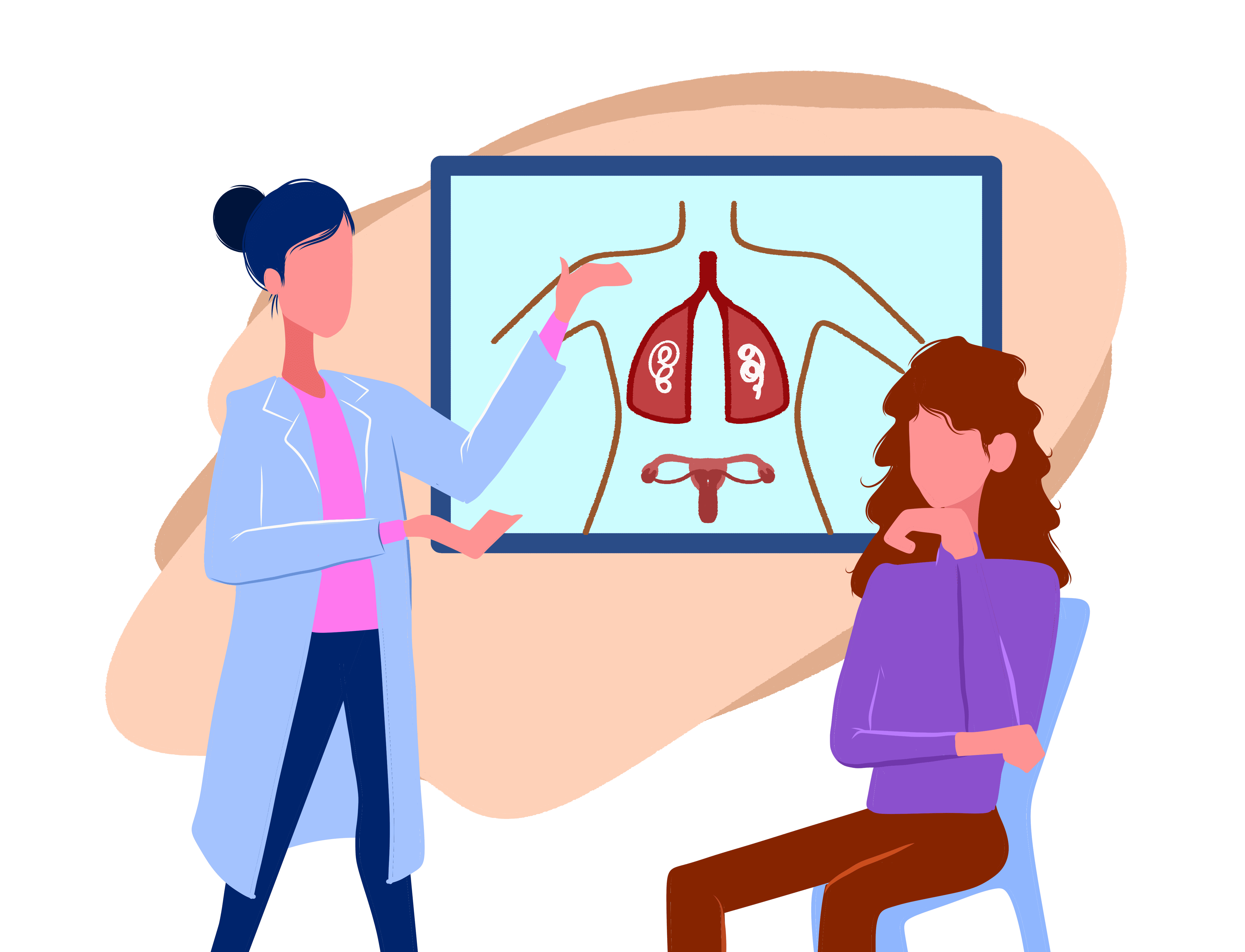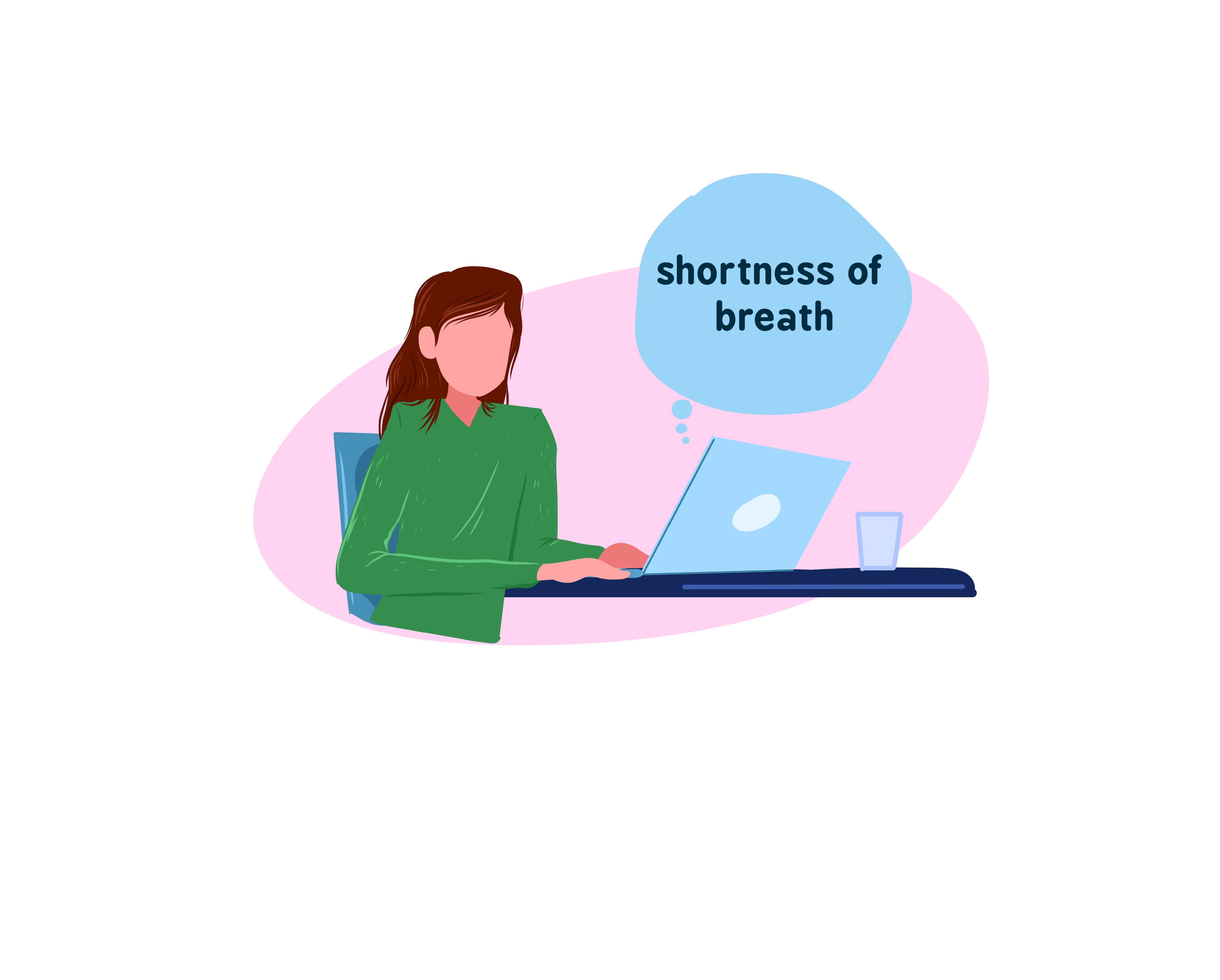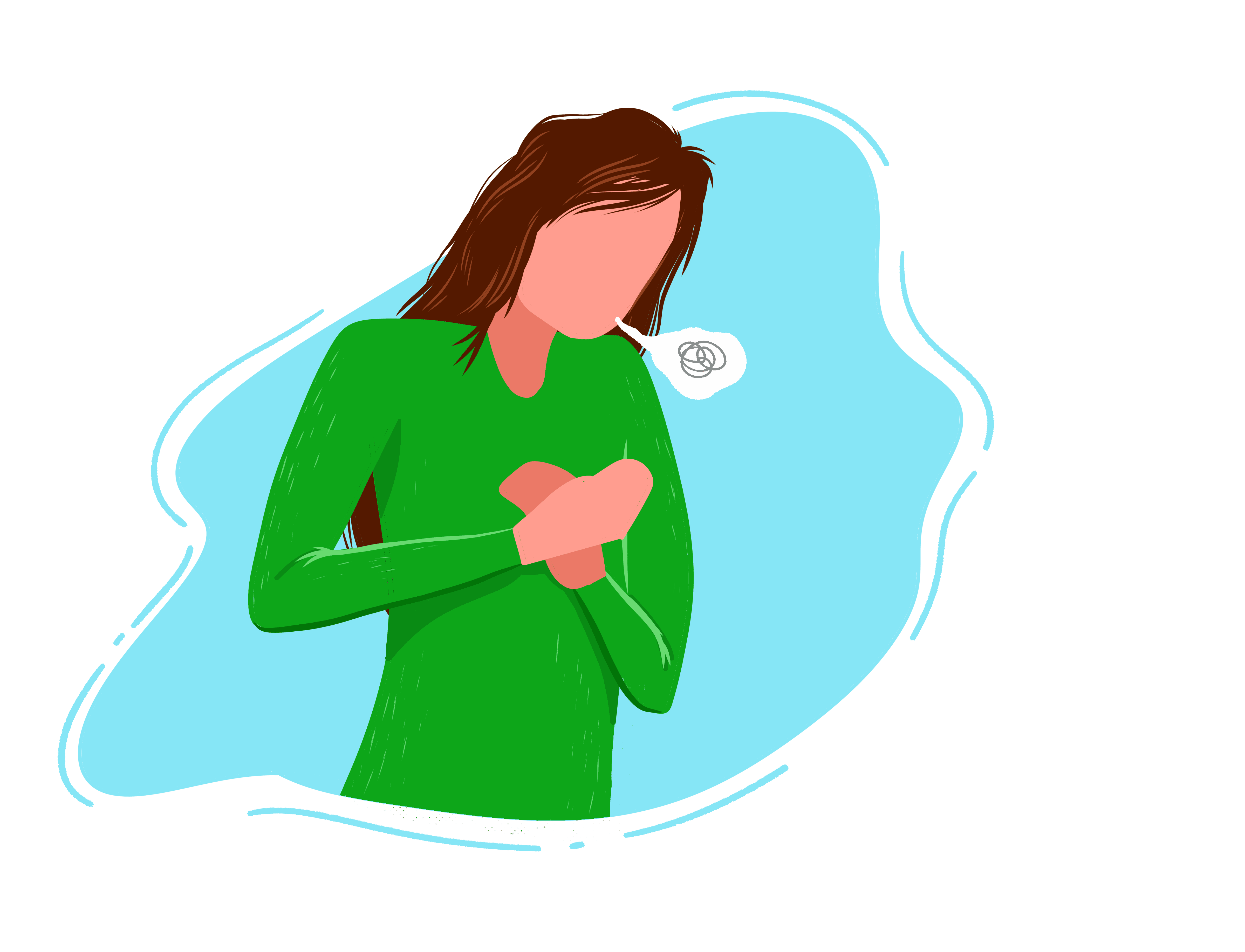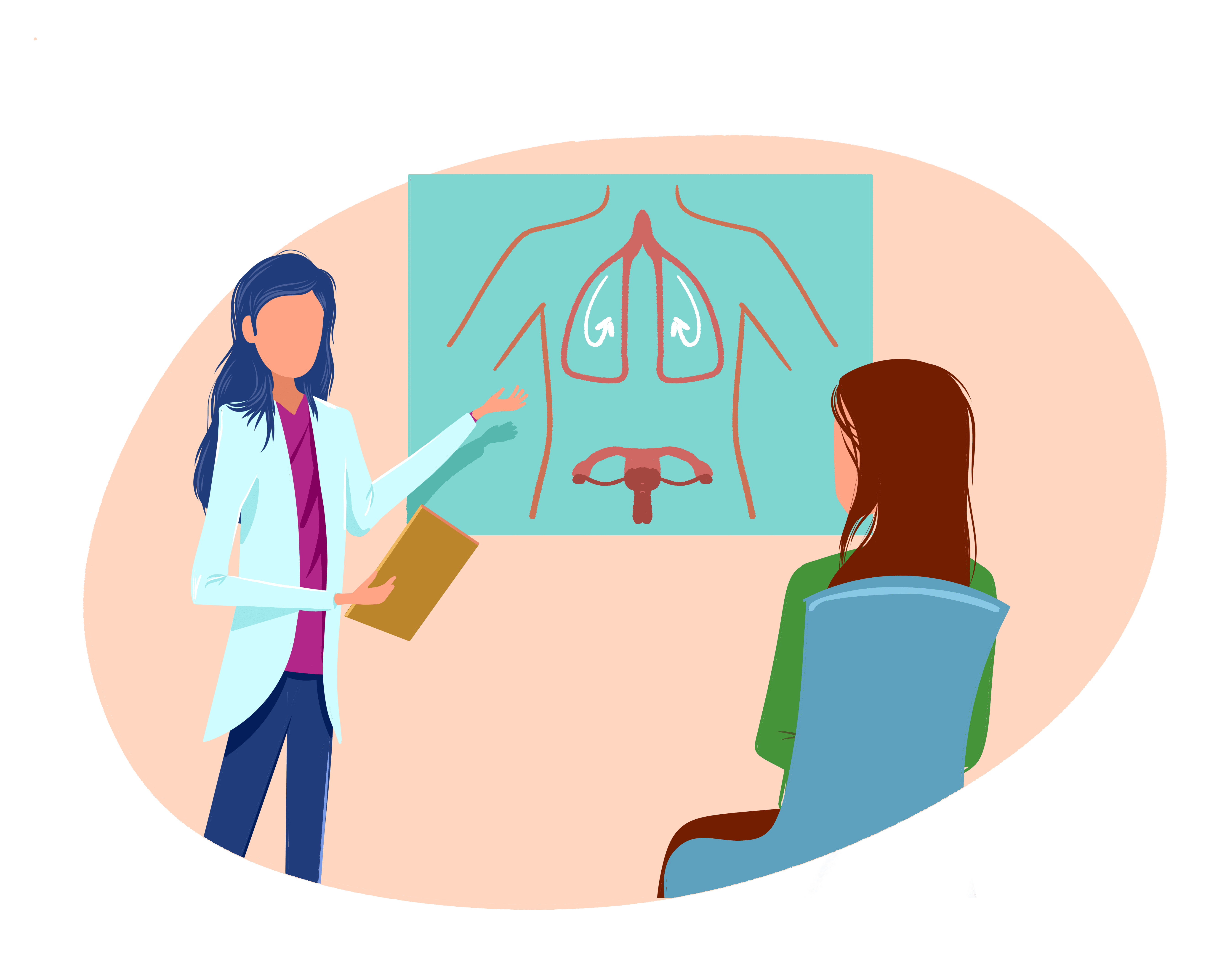Breathing difficulties (clinically known as dyspnea) are a symptom of menopause that approximately 20% of women experience. The main culprit is the drop in oestrogen levels, which affects respiratory and lung function; this of course makes breathing more difficult.
Treatments like HRT and particular lifestyle adjustments are excellent solutions to assist women in managing this symptom.
In this article we’ll cover this menopausal symptom in detail and learn about what can be done to treat.
What Causes Menopausal Shortness of Breath?
Breathlessness, also called Dyspnea in clinical terms, can be a symptom of menopause that results from hormonal changes affecting the respiratory system. Changes in oestrogen levels can affect lung function, resulting in shortness of breath and trouble breathing.
A study published in the American Journal of Respiratory & Critical Care Medicine suggested that the reason for this is due to inflammation in the body.
Oestrogen plays a significant role in how our bodies manage inflammation. But the way it acts can depend on a lot of things – like the type of inflammation, which cells are involved, where in the body it’s happening, and even the body’s metabolism. Because of all these factors, oestrogen can sometimes reduce inflammation, but other times it can actually make inflammation worse.
This complex interaction between hormones and inflammation could be one of the reasons why some women experience a decline in lung function during menopause.
Another study published in the European Respiratory Journal explained that while the decrease in lung function that some women experience after menopause is still a bit of a mystery, it could be linked to changes in sex hormone levels or an increase in insulin resistance after menstruation stops.
One theory is that when menstruation stops, a woman’s body might not be as good at getting rid of toxins, which could lead to harmful chemicals, like those found in cigarette smoke, building up in the body. These chemicals could then harm the lungs.
Having treated menopausal patients at OMC for over 2 years, a common denominator the doctors and nurses here have seen is that balancing and optimising all female hormones (estrogen, progesterone and testosterone) is the most effective treatment option.




